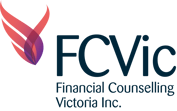I am very proud to note that the FCVic 2024 Summit: The Changing Face of Hardship was a terrific success. This was a keystone event for us, and 330 people made the journey to participate in our Summit and contribute to the critical conversations we need to have, not just for financial counsellors but also for the industries serving clients experiencing hardship. There was a great buzz of conversation throughout the day, focused on and following our panel discussions. It was obvious that each panel topic could have been a whole day topic itself, with many unanswered questions, but I think this speaks to the sheer volume of challenges facing our community and our sector, as well as the need for opportunities like our Summit.
There were many insightful observations and suggestions for practical change that we can each reflect on and enact to respond to the affordability crisis in practical ways. We are so excited by these ideas that FCVic is preparing a detailed ‘Action Report’ from the day that we will share with you, so you can use this as a resource in your continuing advocacy. This will be prepared over the coming weeks and shared in our April Devil’s Advocate.
We provided a detailed update on our funding campaign in the Gazette last week, which I don’t want to repeat here. Instead, I wanted to provide a brief reflection on this work and how it is situated with respect to our ongoing advocacy. In a sense, we are holding our breath a little right now, waiting for the announcement of the State Budget on 7 May which will show whether we have been successful or not in this campaign. In another sense, though, the purpose of the campaign is to improve awareness of hardship in Victoria and the pressures that all financial counsellors are experiencing as they grapple with the consequences of the current affordability crisis. In that respect, our campaign has already been successful in communicating these issues to government, parliament, and the public. Nonetheless, our role is to continue to listen closely to you, our members and the experts on the hardship faced by the community, and to then communicate your insights strategically so that policies change, awareness improves, and resourcing for your work is provided.

